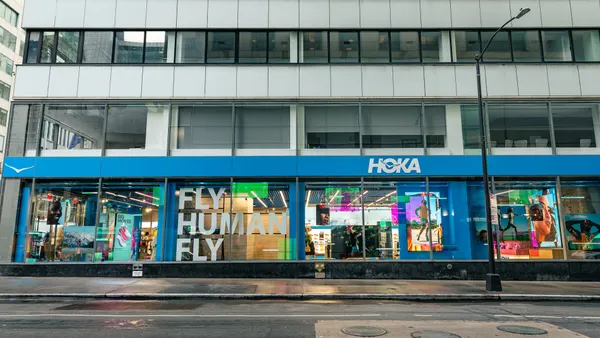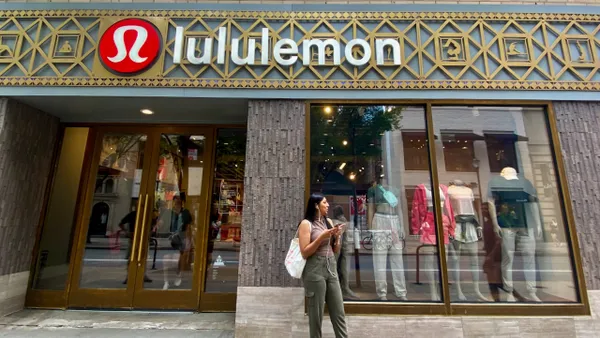Dive Brief:
-
Sales in the mattress category remain strong as Casper on Tuesday reported second quarter net revenue grew 37.7% year over year to $151.8 million.
-
The direct-to-consumer mattress brand's North American revenue increased 44.6%. The growth was driven by its DTC revenue increasing 31.3% to $99.5 million and wholesale revenue increasing 78.9% to $52.2 million, according to a company press release.
-
Casper's net loss widened by $9.5 million from last year to $33.7 million, while its operating loss grew by $10.8 million year over year to $33.1 million.
Dive Insight:
The home sector of retail, including the mattress category, experienced a boost over the past year as more consumers began looking for ways to refresh their homes, the place they were spending a good deal of their time.
That sales growth seemingly has continued for Casper into Q2 with the company's DTC channel delivering its "best quarter since the beginning of the pandemic," CEO Philip Krim told analysts Tuesday.
The brand continued to make progress on its core strategic priorities: expanding its product offerings, increasing brand awareness and adding new distribution points.
To that end, Casper has formed new retail partnerships, including two in July: the first with Mattress Warehouse to sell its products in over 60 stores and the second with Bed Bath & Beyond to open its first branded shop-in-shop in the retailer's recently reopened New York City flagship. In addition to the store concept, Bed Bath & Beyond said it would sell Casper products through its website and mobile app. These partnerships came on top of existing ones the brand has formed over the years with retailers like Target, Sam's Club, Costco and Nordstrom.
But supply chain constraints, which Krim late last year said were the cause of revenue declines in the third quarter, continue to negatively impact the retailer.
"While we continue to make meaningful progress on our strategic priorities and path towards achieving adjusted EBITDA profitability, the extended constraints and inflationary pressures in raw materials, freight and labor across our supply chain significantly hampered our ability to meet the full extent of the record level of demand," Krim said in a statement Tuesday. "We are taking aggressive measures to offset these various challenges, including further diversifying and expanding our supplier base to strengthen our sourcing capabilities, leveraging our growing scale to negotiate preferential rates and implementing price increases to help offset the ongoing inflationary pressures."
Online mattress competitor Purple has experienced its own manufacturing problems recently. Following an accident that caused the brand to conduct safety improvements on its Mattress Max machines, CEO Joe Megibow in July said the company was back up to 85% to 90% production levels.
Purple on Monday reported net revenue increased 10.6% year over year to $182.6 million, and grew 77.3% from 2019. The company's DTC revenue fell nearly 20% from last year, while its wholesale revenues increased 233.2% from 2020. Purple's net income was $2.6 million, from a loss of $97.1 million in the year-ago period.















